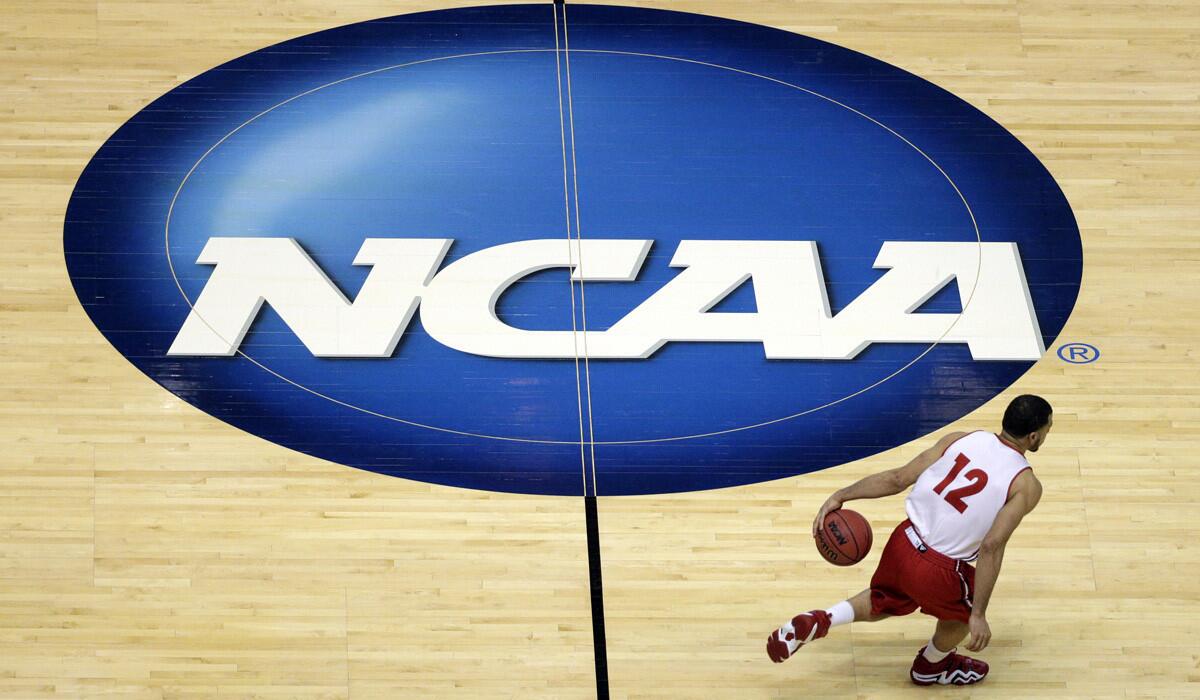NCAA will appeal ruling in Ed O’Bannon antitrust case

- Share via
Two days after losing a major antitrust case in federal court, the NCAA announced Sunday it would appeal the decision, which challenges its long-standing definition of amateurism in college sports.
“We remain confident that the NCAA has not violated antitrust laws,” Donald Remy, the association’s chief legal officer, said in a statement. “We will also be seeking clarity from the district court on some details of the ruling.”
UCLA basketball star Ed O’Bannon had brought the case on behalf of Division I men’s basketball and football players concerned about the NCAA using their names, images and likenesses to generate revenue from the licensing of television broadcasts, advertisements and video games, among other things.
U.S. District Judge Claudia Wilken ruled that NCAA policies “unreasonably restrain trade” by banning athletes from profiting from their own names, images and likenesses.
The ruling did not order the NCAA to share revenue, but lifted the restriction that prohibits its Division I schools from doing so. The member schools and conference may now provide athletes with the “the full cost of attendance” and offer to give them “a limited share of licensing revenue” that would be held in a trust until they graduate or leave school.
The amount of that share can be capped at no less than $5,000 per player annually.
Wilken stopped short of lifting a ban that prevents athletes from signing commercial endorsements on their own.
On Sunday, Remy said “the court supported several of the NCAA’s positions, and we share a commitment to better support student-athletes.”
Earlier last week, the NCAA board of directors voted to give the most powerful football conferences more say in policy-making, a move that could lead to larger athletic scholarships that cover the full cost of attendance.
“We look forward to presenting our arguments on appeal, and in the meantime we will continue to champion student-athlete success on the field and in the classroom,” Remy said.
More to Read
Go beyond the scoreboard
Get the latest on L.A.'s teams in the daily Sports Report newsletter.
You may occasionally receive promotional content from the Los Angeles Times.








